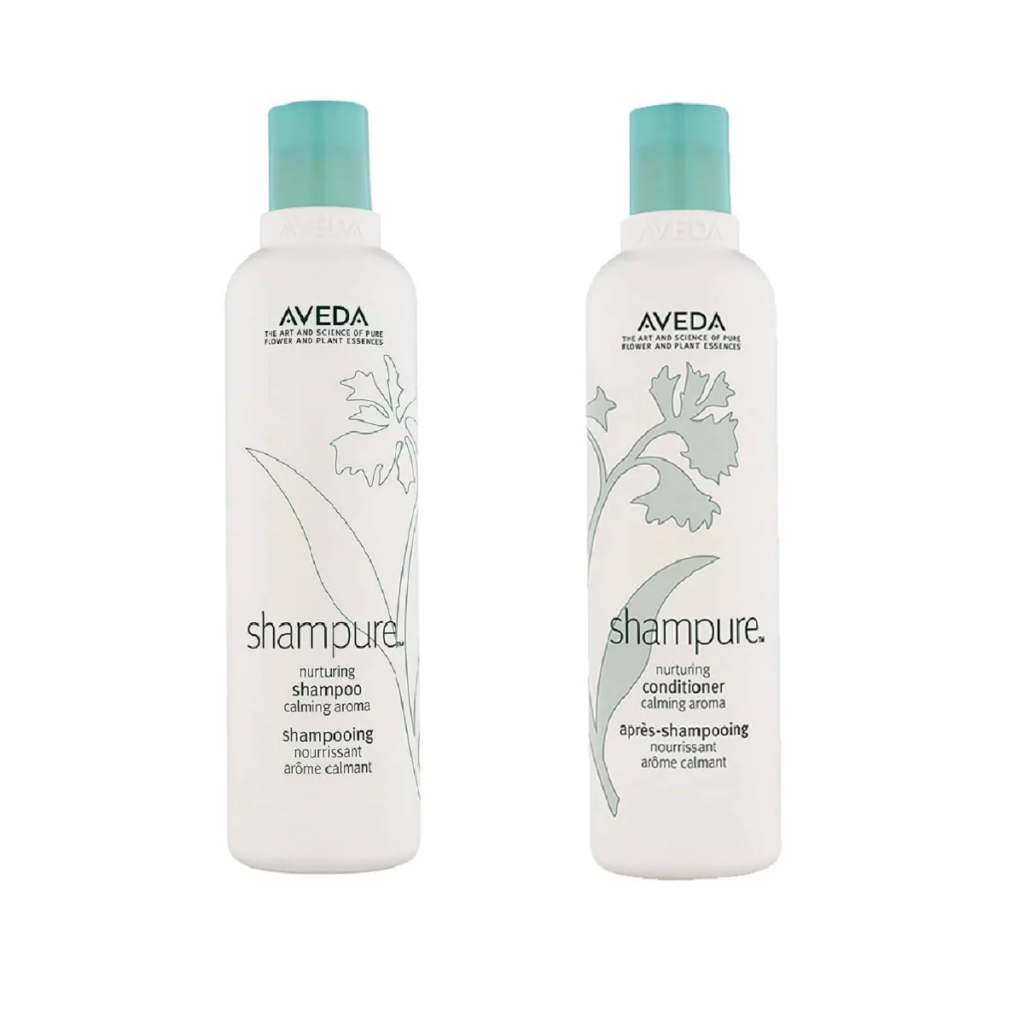Look fabulous while growing your mini-human with these pregnancy and nursing friendly beauty swaps
Pregnancy is a beautiful and transformative journey for many women. However, it can also bring about changes in your body and skin that may require adjustments to your regular beauty routine. For the health of both you and your baby, it’s important to ensure that the products you use during this time are safe and gentle. Let’s explore some common skin concerns you may experience during pregnancy and nursing, along with healthier beauty swaps to keep you looking and feeling your best.
Acne and Breakouts
You are not alone in this! Acne and breakouts during pregnancy are pretty common, as hormone fluctuations can increase oil production and clog pores. This often results in red, inflamed, and sometimes painful pimples.
Medically, the cause of pregnancy acne is primarily due to increased androgen hormones, which stimulate the sebaceous glands, leading to more oil production.
To combat pregnancy acne, avoid harsh products containing ingredients like benzoyl peroxide, salicylic acid, or retinoids, as they may not be safe. Instead, opt for gentle cleansers with natural ingredients like tea tree oil or chamomile, which can help soothe inflammation.
Substitutes we suggest:
Cetaphil Gentle Skin Cleanser
Belli Beauty Anti-Blemish Facial Wash
Additional tips for managing acne during pregnancy include:
- Washing your face twice daily with a gentle cleanser.
- Using a clean, soft towel to pat your face dry.
- Applying oil-free moisturisers to maintain skin hydration.
- Avoiding excessive touching or picking at blemishes – tough, we know.
- Drinking plenty of water to stay hydrated and support healthy skin.

Increased Sensitivity and Irritation
During pregnancy and nursing, your skin may become more sensitive and prone to irritation due to hormonal changes and increased blood flow. This sensitivity can manifest as redness, itching, or a burning sensation on the skin. Avoiding products containing harsh chemicals, fragrances, or dyes that may worsen these symptoms is essential.
Opt for hypoallergenic, fragrance-free products with gentle, calming ingredients to soothe and protect sensitive skin.
Substitutes:
La Roche-Posay Toleriane Hydrating Gentle Cleanser
Burt’s Bees Sensitive Facial Cleanser
In addition to these swaps, you can also:
- Limit exposure to hot water and sun, which can further irritate sensitive skin.
- Use a gentle, fragrance-free laundry detergent for your clothing and bedding.
- Incorporate a soothing, alcohol-free toner into your skincare routine.
- Apply a mineral-based sunscreen to protect your skin from UV damage.

Get tailored content based on your week of pregnancy
By signing up, you agree to receiving our Newsletters. Cancel anytime.



Dryness and Itchiness
Dryness and itchiness are common pregnancy skin concerns, particularly around the growing belly (just in case you feel self-conscious about walking around scratching your tummy). This occurs as the skin stretches and loses moisture, leading to itchiness and sometimes even flakiness.
To combat dryness and itchiness, avoid using harsh soaps or body washes that can strip the skin of its natural oils. Instead, choose gentle, hydrating products containing ingredients like shea butter, cocoa butter, or coconut oil.
Substitutes:
Palmer’s Cocoa Butter Formula Massage Lotion for Stretch Marks
Burt’s Bees Mama Bee Belly Butter
Additional ways to alleviate dryness and itchiness include:
- Taking lukewarm showers instead of hot ones to prevent further skin dehydration.
- Lock in moisture immediately after showering with a hydrating body oil or lotion.
- Using a humidifier in your living space to maintain optimal humidity levels.
- Wearing loose, breathable clothing made from natural fibres like cotton or bamboo.

Related Articles
Melasma
Melasma, also known as the “mask of pregnancy,” is a skin condition that causes dark, discoloured patches on the face. It’s caused by increased melanin production due to hormonal changes during pregnancy.
Avoiding products containing retinoids, hydroquinone, or strong chemical exfoliants is essential to prevent and treat melasma. Instead, choose gentle products with natural brightening ingredients like vitamin C, niacinamide, or liquorice root extract.
Substitutes:
CeraVe Vitamin C Serum
The Ordinary Niacinamide 10% + Zinc 1%
Additional strategies for managing melasma include:
- Wearing a broad-spectrum sunscreen with SPF 30 or higher daily to protect against further pigmentation.
- Seeking shade and wearing wide-brimmed hats when outdoors – even in winter!
- Avoiding exposure to direct sunlight during peak hours (usually between 10 am and 4 pm).
- Consult with a dermatologist for personalised treatment recommendations.

Stretch Marks
Stretch marks are a common concern for pregnant and nursing women, as the rapid growth and stretching of the skin can cause the breakdown of collagen and elastin fibres, leading to the appearance of reddish or purple lines.
Although stretch marks are difficult to prevent entirely, using products that promote skin elasticity and hydration can help minimise their appearance. Avoid products with harsh chemicals or fragrances, and opt for body balms or oils containing ingredients like shea butter, cocoa butter, or almond oil.
Substitutes:
Bio-Oil Skincare Oil
Weleda Stretch Mark Massage Oil
To further reduce the risk of stretch marks, consider the following tips:
- Gently exfoliate your skin with a soft brush or cloth to promote circulation.
- Stay well-hydrated by drinking plenty of water throughout the day.
- Consume a balanced diet of vitamins and minerals to support skin health.
- Engage in regular physical activity to maintain a healthy weight and promote overall well-being.

Hair and Scalp Concerns
Pregnancy and nursing can also affect your hair and scalp, leading to dryness, itchiness, or even hair loss (sorry!). Hormonal fluctuations can change the texture and growth patterns of your hair.
Avoid using shampoos and conditioners with harsh sulfates or parabens to maintain healthy hair and scalp. Instead, choose products containing natural, nourishing ingredients like argan oil, aloe vera, or jojoba oil.
Substitutes:
Aveda Shampure Nurturing Shampoo & Conditioner
Shea Moisture Raw Shea Butter Moisture Retention Shampoo and Restorative Conditioner
Additional hair care tips during pregnancy and nursing include:
- Avoiding tight hairstyles that can cause tension on the hair and scalp.
- Minimising the use of heat styling tools to prevent hair damage.
- Brushing hair gently with a wide-tooth comb to reduce breakage.
- Considering a hair mask or deep conditioning treatment for added nourishment.

Nail Care
Nails can also become brittle or weak during pregnancy and nursing due to hormonal changes and increased nutrient demands. When it comes to nail care, avoid traditional nail polishes containing harmful chemicals like formaldehyde, toluene, or dibutyl phthalate. Instead, opt for water-based, non-toxic nail polishes that are less likely to cause irritation or harm to your baby.
Substitutes:
Zoya Nail Polish
Sienna Byron Bay Nail Polish
For overall nail health, consider these additional tips:
- Keep nails short and well-groomed to prevent breakage.
- Moisturise cuticles with a nourishing oil or cream.
- Wear gloves to protect your nails and hands when cleaning or washing dishes.
- Eat a balanced diet to support nail growth and strength.

Navigating beauty routines during pregnancy and nursing can be challenging. Still, by making simple swaps to safer and gentler products, you can maintain healthy skin, hair and nails while ensuring the well-being of both you and your baby. Always consult with your healthcare provider if you have any concerns or questions about the safety of specific products during pregnancy and nursing.
Related Articles
What beauty products can you use when pregnant?
Beauty and skincare ingredients to avoid during your pregnancy
Samantha Brett is educating the next generation about skin cancer prevention, one book at a time

Nikki Stevenson Follow +
Nikki is a parenting writer and a mom to three wild boys who keep her on her toes (and occasionally make her question her sanity). With over 15 years of experience in the parenting industry, she has more tips and tricks than Mary Poppins on speed dial. When she's not typing away at her keyboard, you can find her sipping on coffee, hiding in the bathroom for five minutes of...




